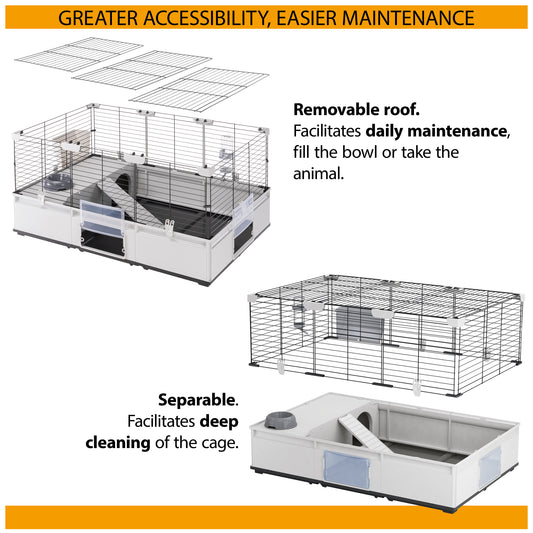By Karen Cornish
August is National Immunisation Awareness Month which aims to highlight the importance of routine vaccinations for people of all ages. Vaccines help pets and humans by teaching the immune system to make antibodies that fight diseases. They are important for both of us.
Since 2014, the UK has seen more cases of distemper and parvovirus, according to PDSA, a leading veterinary charity. Many dogs in the country are not vaccinated. It is important for pet owners to understand the importance of immunization.
Vaccinations are an easy way of protecting the animals in our care from serious illness. Getting a dog vaccinated is important for their health and lifespan. It's a responsible thing to do as a pet owner.
Puppies are protected against most illnesses for the first few weeks of their lives due to immunity that is passed on to them through their mother’s milk. Once they have been weaned off milk, this immunity reduces so puppies need to receive vaccinations. By the time an owner picks their puppy up from a breeder, they should have already had their first lot of jabs.
A puppy needs to start its primary vaccine course at around 6-8 weeks old and will need to have two or three injections that are 2-4 weeks apart. A puppy will be fully protected 2-4 weeks after its final injection but will require regular booster jabs throughout its life to maintain an effective level of immunity.
Until a puppy is fully vaccinated against parvovirus, distemper, infectious hepatitis, and leptospirosis, they should not be allowed to walk in public places or to socialise with any unvaccinated dogs – however, it is okay to carry your unvaccinated puppy until they get their jabs. Until a puppy is fully protected it is vulnerable to picking up contagious diseases from other dogs in the area, as well as from the environment.
Adult dogs with long gaps between boosters may need to redo the initial vaccine series to ensure proper protection. Rescue dogs get vaccinated if their past is unknown, so they stay safe in their new homes.
Parvovirus (also known as canine parvovirus, CPV, or parvo)
Parvovirus, highly contagious, triggers severe vomiting and diarrhoea, often fatal in unvaccinated dogs. It disrupts nutrient absorption in the intestines. UK's parvo prevalence stresses early vaccination and triennial boosters.
Outbreaks occur where unvaccinated dogs cluster, notably in urban areas and puppy farms. Symptoms manifest after up to seven days, with rapid decline leading to death, even with prompt treatment.
Distemper (also known as CDV or footpad disease)
Distemper is similar to the human measles virus. It spreads through contact with infected dogs and from items they have touched. It attacks different organs in the body and causes a range of symptoms starting with runny eyes and nose, coughing and diarrhoea.
After 3-4 weeks, the virus causes the paw pads and nose to harden. This can lead to various issues with the brain and muscles, such as seizures and stiffness.
Distemper is often fatal and at one time would wipe out whole towns of dogs. Thanks to the vaccinations that were introduced in the 1950s, the disease has been almost eradicated. However, it still remains a risk to unvaccinated dogs.
Infectious canine hepatitis (also known as canine adenovirus and Rubarth’s Disease)
ICH spreads via bodily fluids and contact with infected dogs. This virus targets the liver, kidneys, immune system, and more.
Symptoms vary, from lethargy and vomiting to seizures. Severe cases lead to death or euthanasia. The virus can survive for a year in the environment and recovered dogs shed it in urine for up to 9 months.
Leptospirosis (also known as Lepto)
Leptospirosis spreads via infected dogs, rodents, and water. Swimming and rodent hunting heighten risks. This bacterial disease harms organs, causing fever, weakness, appetite loss, vomiting, and more.
Severe cases demand euthanasia. Recovered dogs may spread bacteria through urine for months. Humans are also at risk, with the disease referred to as Weil's disease.
Kennel cough
The kennel cough vaccine is not necessary for every dog but it is recommended that you have your dog immunised if they mix with lots of other dogs. Boarding kennels, doggie day care facilities and dog walkers usually insist their clients are vaccinated as a condition of care.
Kennel cough vaccines only last for a year so will require an annual boost to ensure your dog is protected.
Rabies
Rabies was eradicated from all UK animals – except bats – in 1922, and the last case in an imported animal outside of quarantine was in 1970. If you are not planning to take your dog out of the UK then there is no need to get them vaccinated against rabies.
If you plan to travel abroad with your dog, you will need to follow the regulation required by the country you are travelling to and the rules for re-entering the UK. Your vet will be able to inform you of the latest guidelines for travel and whether your dog will require a rabies jab. You can also find the latest advice from the government at https://www.gov.uk/taking-your-pet-abroad.
Getting your dog vaccinated
To vaccinate your pup or adult dog, arrange a vet appointment. Before vaccination, your vet conducts a health check and inquires about their well-being.
Vaccines are administered via a neck injection due to excess neck skin, ensuring no tissue penetration. Though usually painless, there might be a mild sting. The process is swift, and bringing treats can distract and reward your dog.
While rare, vaccinations can trigger side effects. Commonly, dogs experience reduced energy, appetite, and mild fever for 24-48 hours post-vaccination. In case of allergic reactions like itchy skin, swollen face, breathing troubles, or digestive issues, urgently contact your vet.
Are annual booster vaccinations necessary?
Vaccination protection duration varies based on disease, vaccine type, and individual immune response. Discuss the best vaccine schedule with your vet.
Distemper, parvovirus, and hepatitis vaccines usually last three years, while leptospirosis protection is for one year.
If you're worried about over-vaccination due to allergies or health, your vet might recommend a titre test. It checks existing immunity against key diseases, aiding booster decisions.
Though immunity wanes, blood tests can reveal remaining protection. Delaying a booster might be possible, except for leptospirosis, which requires annual boosting.
What are the costs?
Vaccination and vet appointment costs vary by practice, so check current prices before booking. Treating a seriously ill dog with preventable diseases is much costlier, with no guarantee of recovery.
Note that pet insurance usually doesn't cover preventive care like vaccinations or illnesses preventable through vaccination.
Combine an annual check-up with a vaccine booster to ensure your pet's health. Early detection and treatment of issues like weight management, oral health, or growths are possible.
Regular vet visits, even when your dog isn't unwell, familiarize them with the clinic and reduce stress. Vets often have treats for visitors, offering an opportunity for owners to seek advice about their pet's health.
If you enjoyed this article, why not read:









